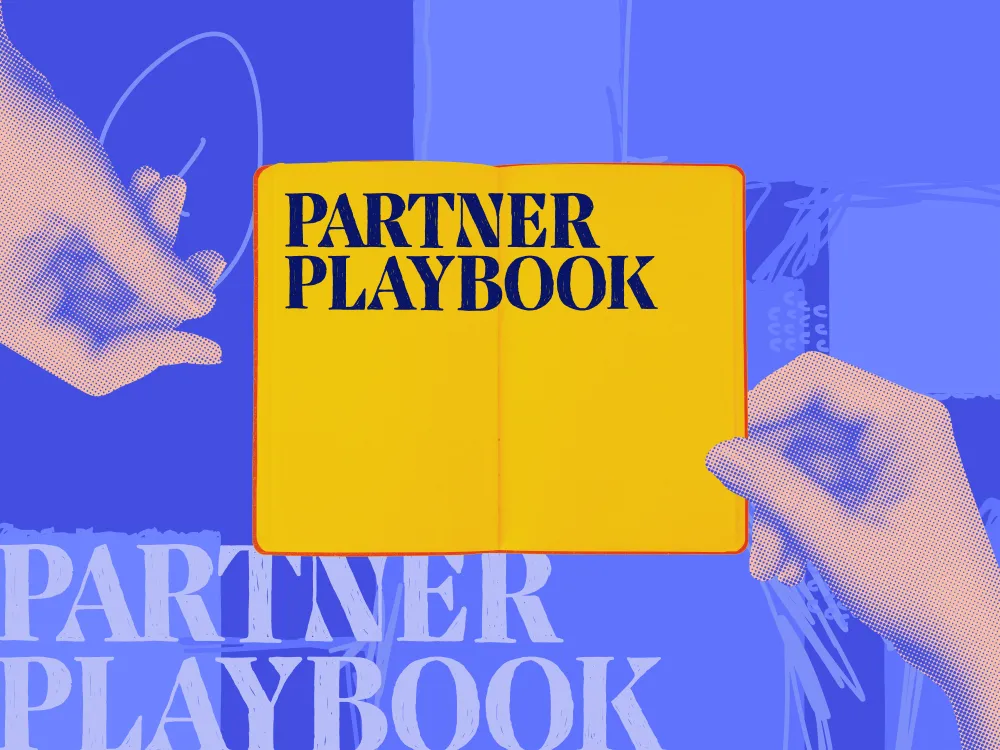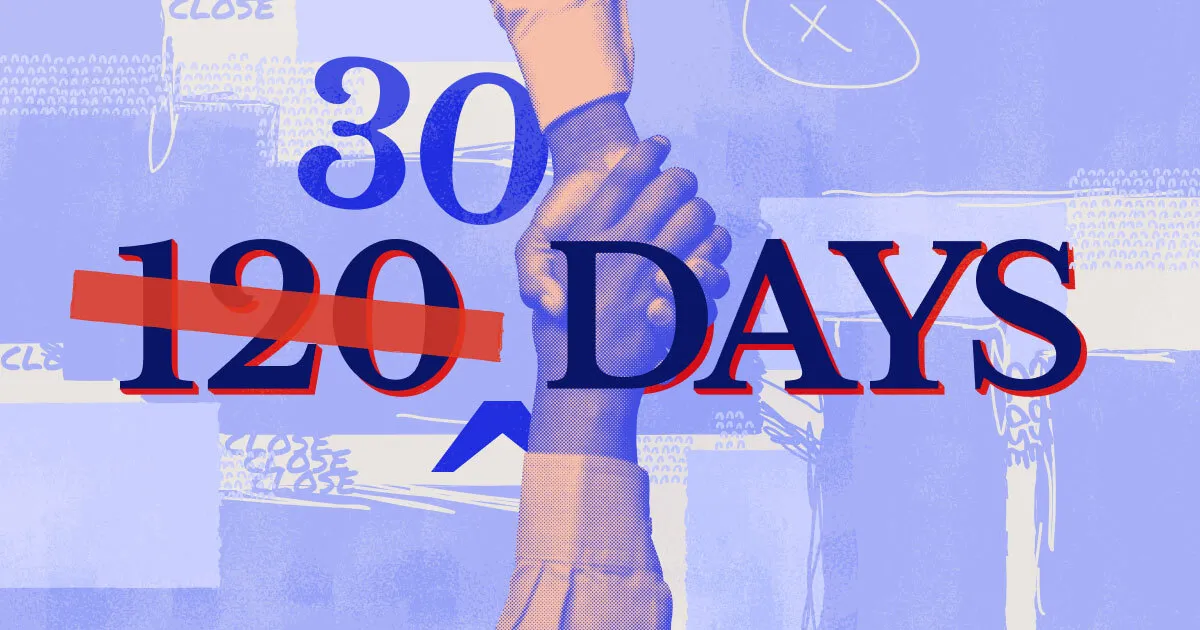The anticipation of closing a deal is real. It’s the culmination of weeks, if not months of work and all sides are ready to enjoy the results — and new revenue streams.
It’s the waiting that gets you since closing a deal can take a very long time. As Nikita Zhitkevich, Director of Channel Partnership and Alliance at PartnerStack explains, they can take anywhere between 60 to 160 days to close depending on the type of deal and the size of the company.
“Enterprise organizations, from an inbound and outbound perspective, can be somewhere in the range of 120 to 160 days,” Zhitkevich says, noting that these organizations often have to find alignment with a potential partner, do due diligence including legal and compliance, agree on the budget, and ensure that all stakeholders are informed and aligned with the partnership.
“That entire process of alignment and procurement can take between 90 to 120 days once you make that call, knowing the budget is secure and everyone's on board,” he says.
It would look like this: A procurement cycle for an enterprise company might take 30 to 60 days. That usually means legal and compliance are doing their due diligence. “Some organizations can do a half-year procurement process before we even get started working with the teams.”
The rest of the timeline is alignment. Faced with such long timelines, what can a partner do to speed up the process while adhering to due diligence?
Do the work before reaching out
As Zhitkevich previously suggested, the procurement and compliance process can take up to six months before they come to partners. A tactic that he’s seen partners implement to speed up the process is to take advantage of those six months by identifying problems and finding potential solutions. “Then, it’s ‘Who should we be talking to?’ and ‘What do we need to actually implement this?’”.
He says they’re having these conversations with vendors, hearing potential solutions, aligning on budget and laying out next steps to solve that problem, and by doing the pre-work, partners speed up a lot of the early stages of the deal cycle.

Have a playbook ready to go
Zhitkevich says having a partner playbook can help close a deal faster. He says people go to partners for different reasons, including previous experience with a deal. “Usually if a partner has done it for another client, they have a playbook and they can move a lot faster than a client that has never really even tackled the problem before.”
Any company can benefit from leveraging a playbook but Zhitkevich says small and medium businesses (SMBs) really benefit the most. As he explains, enterprise companies, which have more than 1,000 employees, can afford to pay for information, research and to bring agencies into the process. Plus, they have the personnel numbers to throw at problems.
SMBs, on the other hand, which have fewer than 1,000 employees, could benefit from more automation and a tried-and-tested process that works for them.
“They need to understand the strategy — how to budget and how to set it up — but sometimes there isn't necessarily equal access to some of that information.”
A playbook is an amazing tool when it comes to speeding things up because it has most, if not all of the solutions, with verifiable metrics. A playbook usually includes answers to:
- Pain points
- Possible costing
- Case studies
- Research
See more: Optimizing your partnership funnel for signs of leakage.
Incentivize a faster closing
It’s no secret that tech has been in a crisis for the last year. The era of big spending is over and efficiency is in. Forrester predicts that US tech spending will slow to 5.4% as compared to 7.4% in 2022. “We can no longer spend more than we make anymore,” says Zhitkevich. “We also have to make our returns faster.”
This may seem obvious, but the quicker you close a partner, the quicker they start seeing returns. If a partner goes from 120 or 160 days to 30 to 90 days, that’s an additional quarter where they’re seeing and receiving value.

This all takes trust
Playbooks, incentives and an accelerated pace are fine, but if a partner doesn’t trust you, why should they move faster?
It’s an important question because Zhitkevich says partners are looking for best-in-class solutions and a team that is actually going to work with them to provide the best experience for their customers.
Partners have an existing trust with their customers, which is fragile. It takes so long to nurture but it can be brought down really quickly if they provide a poor recommendation. So when they work with organizations, they tend to work with those that match their level of trust, urgency and that have the same understanding of what's important to them and their customers.
“Usually [for] the deals where speed is really a factor, you already have some kind of relationship with the partner,” he says. “That means they trust you enough to bring you into sales cycles because they know we're going to move quickly and they know they can talk about your specific solution in-depth at that point.”
Remember, partners are looking for reliable organizations with best-in-class technology and a history of performance. That, plus a strong relationship can help speed up a deal where everyone wins.
You might also like: Win internal trust and buy-in for your partner program.

















